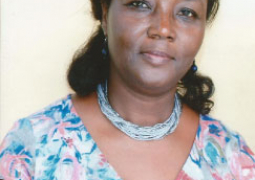We share the concerns raised by some members of the National Assembly with regard to food aid distribution in the country.
While some areas have benefitted, many communities, for instance in Kantora, Niamina West, Basse and Wuli, do not even know that there has been food aid and fertilizer assistance given to farmers in the country.
So the question that comes to mind is whether the assessment of areas deserving such assistance was properly done , and whether such assessment was credible.
The 2011 crop failure has affected almost every part of The Gambia, and if the government and development partners are giving support, it must be available to almost all deserving communities.
We quite agree that the most affected areas should be given priority in food aid distribution, but we must ensure that there is fair play in helping our poor Gambian farmers.
While we are not pointing fingers at any one for any wrongdoing, we must make it clear that the communities are watching as well as the donor community as to how the assistance they are giving is trickling down to the intended beneficiaries.
Meanwhile, it is our view that in order to cope in future with this threatening situation of food shortage in the country, The Gambia has to increase domestic food production and substitute local foodstuffs for the increasingly costly imported items.
Farmers must be assisted in their efforts to expand food crop production, because the jump in the cost of imported food will increase the demand for local food.
Increased production could save us a lot in foreign exchange, generate employment and improve rural development.
We hope that the agricultural community with the help of the government and its partners will rise to the challenge.
Lately, the prices of many commodities have surged exponentially to a point where it threatens to shoot household budgets over the roof.
This is why people, particularly poor farmers in all parts of the country, who were affected most by crop failure, deserve to be given urgent support.
While some areas have benefitted, many communities, for instance in Kantora, Niamina West, Basse and Wuli, do not even know that there has been food aid and fertilizer assistance given to farmers in the country.
So the question that comes to mind is whether the assessment of areas deserving such assistance was properly done , and whether such assessment was credible.
The 2011 crop failure has affected almost every part of The Gambia, and if the government and development partners are giving support, it must be available to almost all deserving communities.
We quite agree that the most affected areas should be given priority in food aid distribution, but we must ensure that there is fair play in helping our poor Gambian farmers.
While we are not pointing fingers at any one for any wrongdoing, we must make it clear that the communities are watching as well as the donor community as to how the assistance they are giving is trickling down to the intended beneficiaries.
Meanwhile, it is our view that in order to cope in future with this threatening situation of food shortage in the country, The Gambia has to increase domestic food production and substitute local foodstuffs for the increasingly costly imported items.
Farmers must be assisted in their efforts to expand food crop production, because the jump in the cost of imported food will increase the demand for local food.
Increased production could save us a lot in foreign exchange, generate employment and improve rural development.
We hope that the agricultural community with the help of the government and its partners will rise to the challenge.
Lately, the prices of many commodities have surged exponentially to a point where it threatens to shoot household budgets over the roof.
This is why people, particularly poor farmers in all parts of the country, who were affected most by crop failure, deserve to be given urgent support.



